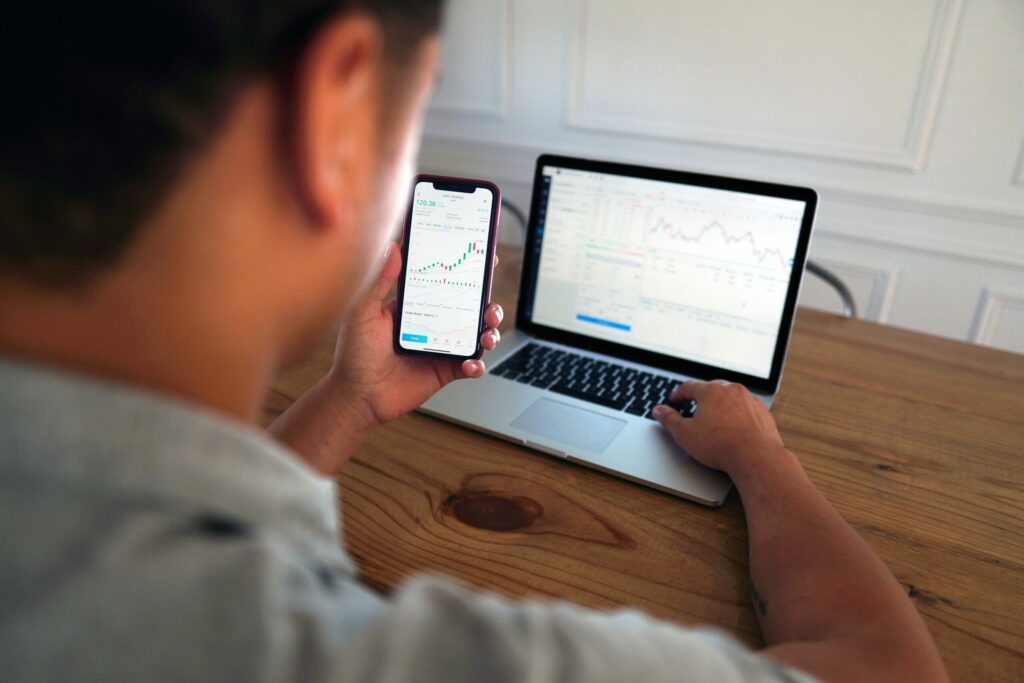Prospects for stock market growth have remained resiliently and optimistically cheerful this year, despite the nine-month-long pandemic. Unfortunately, the time may be at hand for a stock market price correction that better reflects the state of the global economy.
The lack of ongoing fiscal stimulus which, even if passed, may not feasibly be able to distribute funds before the election or even before the end of the year, may have a greater effect on the economy than just individual households. Federal Reserve officials continue to call for more government stimulus, warning that the economy remains in a “deep hole.” However, this close to the highly anticipated and contentious election, government efforts are more focused on politics and judicial branch activities than the economy. As a result, some market analysts are questioning whether their initial year-end projections are overpriced based on an expected rebound that may not materialize.1
Why You Should Evaluate Your Financial Portfolio in Q4
As we approach year end, you should schedule a time with your financial advisor to review your investment portfolio. While we do not typically recommend dramatic changes based on the current state of the economy, the stock market or even the outcome of a presidential election, we do encourage our clients to regularly evaluate their portfolio to ensure it is aligned to their goals and risk tolerance. Now more than ever, we believe it’s important to have an asset allocation strategy designed to weather volatile times.
There is a group of people who may be able to anticipate market trends even more quickly than Wall Street analysts — the corporate executives and officers of S&P 500 companies with firsthand knowledge of their businesses. If actions speak louder than words, prospects look pessimistic. Throughout September, these executives began selling personal shares of their own company stock at a rate not seen since 2012.2
The problem is that the damage of this economic decline has not been universal. Many office workers and their companies have adapted to a work-from-home model, enabling white collar employees to maintain their level of income despite the pandemic. The same is not true for workers in a wide range of industries, from travel to food and beverage to personal services, like hair salons and fitness instructors. Recent research has found that lower-income workers have borne the brunt of the COVID recession. In fact, by mid-summer the recession had effectively ended for high-income individuals, while the bottom half of Americans represented the bulk of the unemployed.3
Meanwhile, the initial boost to the labor market that accompanied reopening the economy this past summer is slowing down again. At the same time, oil prices have dipped due to sustained reduced demand. There is only so much that government leaders can do to stimulate the economy; they cannot force people to leave their homes and buy goods and services. Much of this realization is coming to a head just prior to the election.4
The news isn’t much better globally. Asian and Australian stocks slid toward the end of September amid fears that more countries are seeing outbreaks with the arrival of cooler weather.5 In countries where the virus remains uncontained, government stimulus efforts are drained and the year-long effect is slowly emerging. As infection rates rise again, many countries are reintroducing stricter rules to help curb the virus. This, in turn, will also curb economic growth.
Will the Economy Return to Pre-Pandemic Levels?
A recent poll of economists concluded that a return to pre-pandemic economic levels is not expected until at least the end of 2022.6 Given that the direction of the economy appears aligned with the rise and fall of infection rates, it’s becoming more clear to both Wall Street and Main Street that the top priority in getting domestic and world growth back on track is to prioritize containment of COVID-19 once and for all.
Content prepared by Kara Stefan Communications.
1 Simon Jessop & Andrew Galbraith. The Edge Markets. Sept. 24, 2020. “Shares slide, US dollar up as hopes of economic recovery fade.” https://www.theedgemarkets.com/article/shares-slide-us-dollar-hopes-economic-recovery-fade. Accessed Sept. 28, 2020.
2 Vildana Hajric and Lu Wang. Yahoo Finance. Sept. 23, 2020. “Insiders Sell Stock at Fastest Pace Since 2012 in Market Dip.” https://finance.yahoo.com/news/insiders-sell-stock-fastest-pace-214631545.html. Accessed Sept. 28, 2020.
3 Ben Steverman. Bloomberg. Sept. 24, 2020. “Harvard’s Chetty Finds Economic Carnage in Wealthiest ZIP Codes.” https://www.bloomberg.com/news/features/2020-09-24/harvard-economist-raj-chetty-creates-god-s-eye-view-of-pandemic-damage?sref=AhQQoPzF. Accessed Sept. 28, 2020.
4 Rodrigo Campos. Reuters. Sept. 24, 2020. “GLOBAL MARKETS-Shares slide, dollar up as hopes of economic recovery fade.” https://www.reuters.com/article/global-markets/global-markets-shares-slide-dollar-up-as-hopes-of-economic-recovery-fade-idUSL2N2GL0OD. Accessed Sept. 28, 2020.
5 Gina Lee. Yahoo Finance. Sept. 23, 2020. “Asian Stocks Slide, With Investors Losing Faith in COVID-19 Economic Recovery.” https://finance.yahoo.com/news/asian-stocks-slide-investors-losing-233533523.html. Accessed Sept. 28, 2020.
6 Jonathan Cable. Reuters. Sept. 23, 2020. “Euro zone economic recovery in danger as services slide.” https://www.reuters.com/article/us-eurozone-economy-pmi/euro-zone-economic-recovery-in-danger-as-services-slide-idUSKCN26E17Z?il=0. Accessed Sept. 28, 2020.




